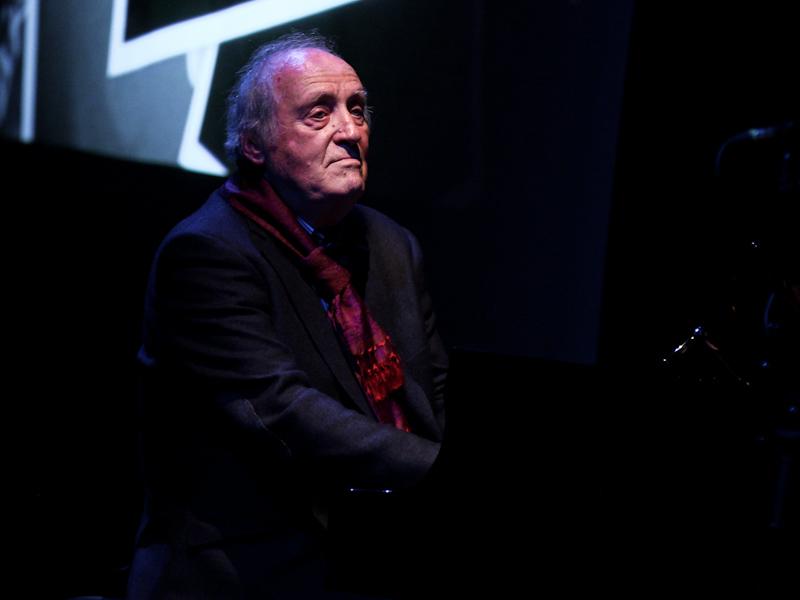
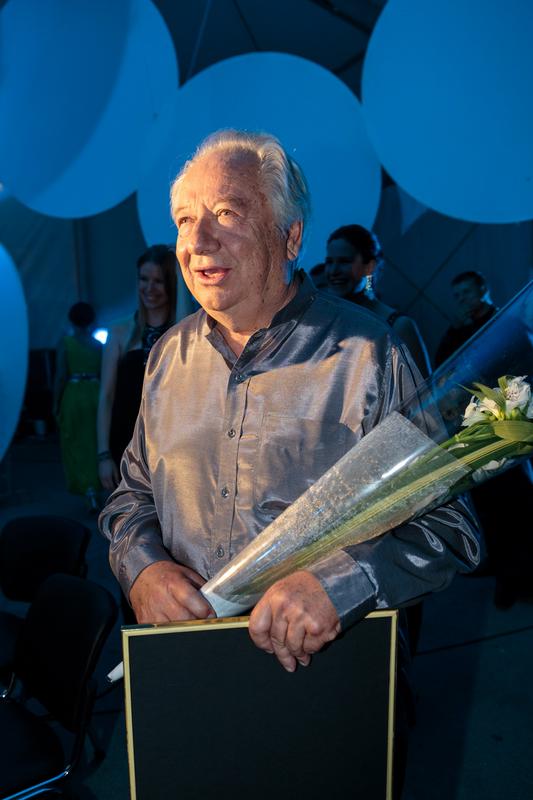
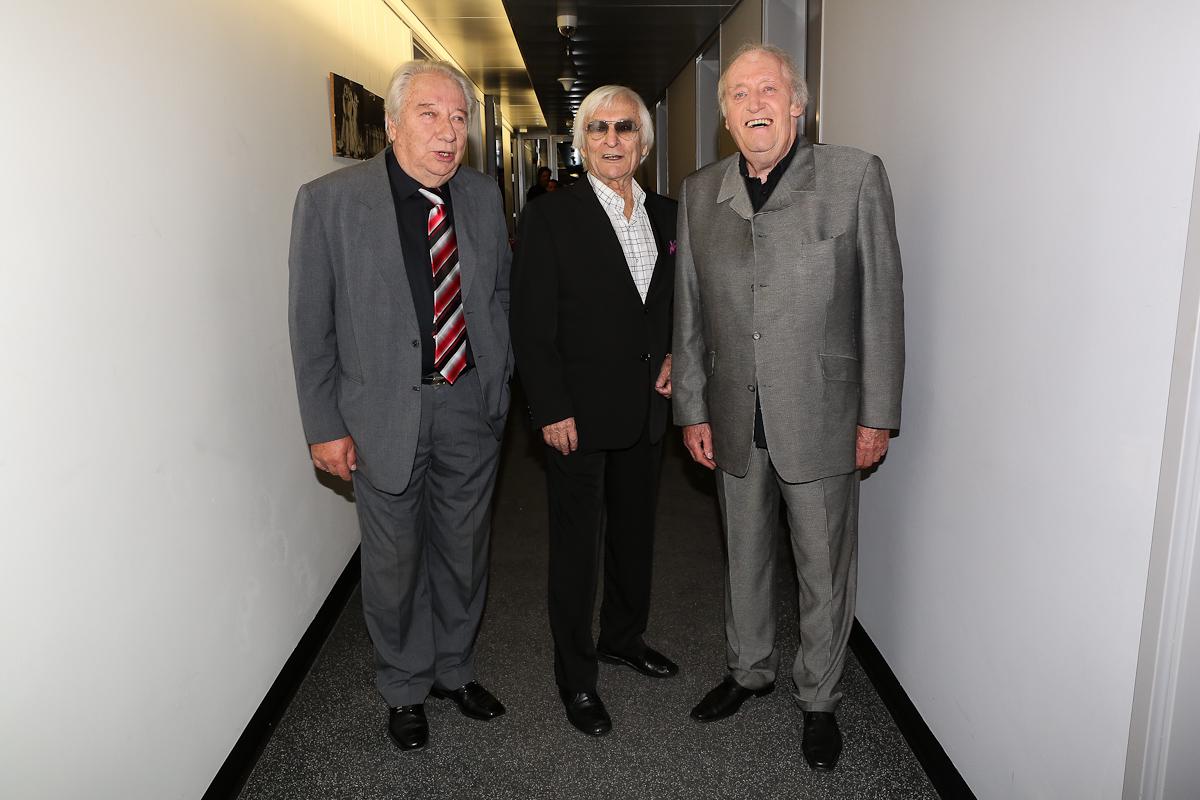
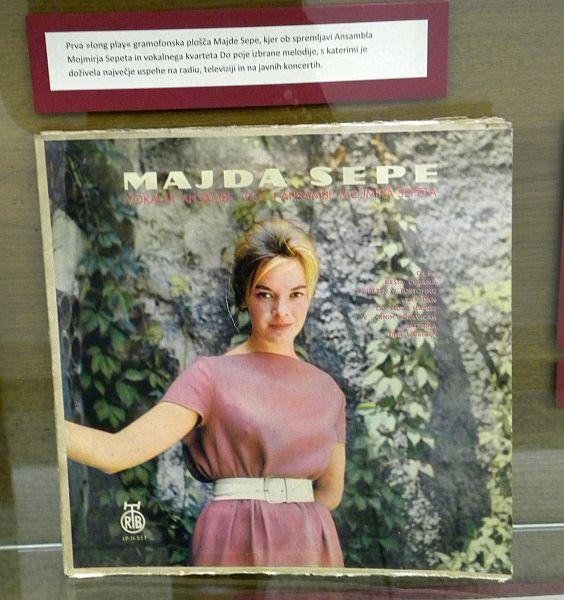
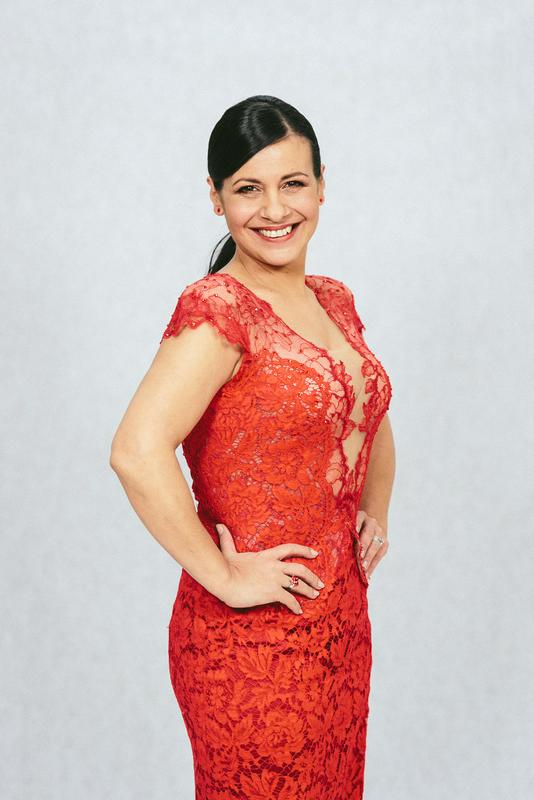
"Among the stars, day and night, this world is turning," sang , first with a small accompanying band, then with Nino Robič and an entertainment orchestra of RTV Ljubljana, and later with the conductor Jože Privšek in 1962 in the Festival Hall in Bled at the first Slovenian song festival "Bled '62".
Poet Gregor Strniša wrote legendary verses which brought him an award for the best lyrics, while Mojmir Sepe got another for melody. And the world has been turning for 53 years since the first festival. The Slovenian song festival grew into a proper international festival in the seventies, alternating domestic and eminent foreign artists sent to Ljubljana's Tivoli Hall by famous European radio stations such as the BBC and RAI, as well as the Polish, Czech, Swiss and Irish radios.
Much has changed over the decades. The organisers strove for a modern theme and fresh melodious expression in their lyrics, inviting old and new faces; however, the song festival made way for the pop workshop in the eighties and returned at the end of the nineties. RTV Ljubljana was renamed RTV Slovenia. Its great music ensembles still record selected Slovenian songs in the radio studios and the legendary studios 14 and 26 every year. Among the big names and well-known artists from that time, we will limit ourselves to two.
Jure Robežnik – master and legend of Slovenian music
The Slovenian pioneer of jazz, excellent composer, vibraphonist, former editor of the largest publisher ZKP RTV Ljubljana, great traveller and constant explorer. His many songs and compositions still delight audiences.
His most famous songs include Pegasto dekle (Freckled girl), Maja z biseri (Maja with pearls), Ljubljančanke (Ljubljana girls), Orion, Nebotičnik (Skyscraper), Vrtiljak (Carousel) and many others. He turned 80 recently, and still remembers his youth with the following: "In addition to the records, we listened to a lot of radio. At that time, the Voice of America station was very important. The station had beautiful jazz shows. A little later radio Luxembourg joined in. With time, Yugoslavia began to open up. First American films with big bands arrived. These were films with the Woody Herman Orchestra, then the film Bathing Beauty came – it was complete hysteria. People were up all night waiting for tickets and fighting each other to get them. Everyone has seen this film several times; I saw it at least five times. Bathing Beauty was a brilliant film with great music by the Harry James Orchestra. It was jazz, which was intended for commercial listening. Eventually, foreign musicians began visiting us. Louis Armstrong was the first to come. If I'm not mistaken, his visit was organised by the American embassy. In short, we managed."
At the radio station where he worked, he had a special task to develop Slovenian vocal popular music, which practically did not exist until then. It was a long process that has yielded good results. The first jazz festival in Bled, the first jazz record... he wrote the history. "Even if we did write history, I don’t think anyone was aware of it at that time. We loved this music, we had a nice time, we explored.” WAt that time, the American film industry sang the praises of Europe: An American in Paris with Gene Kelly, Three Coins in the Fountain, etc. At the time, American films reflected the attraction and longing for the bohemian world of old Europe. And these films have also fuelled us to begin dreaming about Paris – the longing of every young person. You know, we were reading Hemingway, Fitzgerald... Do you know what Montmartre was like in the fifties? Real bohemians, painters, great musicians were there, and they played there every evening in the Django Reinhardt style. The outburst of creativity in Slovenia was the result of war and deprivation. As editors and creators, we somehow intuitively felt that the nation needed collective relief, that we wanted songs, Slovenian songs ... The best things don't occur in excessive prosperity and abundance."
When composing, Robežnik collaborated with prominent Slovenian songwriters, from Elza Budau to Gregor Strniša, and in the musical sense he was closely associated with Mojmir Sepe, Ati Soss, and other composers. "One generation found itself," reflects this very fruitful period of Slovenian music in the seventies of the last century.
Mojmir Sepe – composer and conductor
His opus comprises of over 500 songs and adaptations. Music took Mojmir Sepe to a number of countries – in the East and the West. "We were mainly favoured in the Eastern Blok. They were a more closed society than we were. And then and there we were selling the spirit of the west in the east.” And quite prospered,” he recalls of the days when he performed with his ensemble. But not just in Eastern countries. They also toured in Switzerland, Austria, Eastern Germany and Paris. “We played in Paris for NATO troops because it was impossible to get a Paris working visa to play for the Paris audience. For the Americans, this was not a problem. So we played there."
More than a decade ago, he won the Viktor award for his life's work. And how does he feel today, when he comes before the full Gallus Hall, compared to the beginnings? "At the beginning we played more in dance halls, at union celebrations. We organised concerts, which were mostly very tied to the singers. But this did not happen in such 'prominent' concert halls. Rarely, although I recall that one time we performed at the Philharmonics. Performances were called arrangers nights. Not much was filmed for the radio there, I do not know whether television even existed then. We played at ordinary parties in big halls. And with this, it began. Then, of course, the concert stages came into play and touring – from Russia to Poland."
He fell very early under the influence of foreign music. He was touched by jazz, but the Beatles just past him by. "Yes, incredible. We are from the era of swing. The Beatles are a much, much younger generation. Besides, very few professional musicians believed then that the Beatles would really be such a boom when they appeared. But as we get older, we see that we were wrong. This was one amazing phenomenon. Musically, not only sociologically."
Mojmir Sepe visibly marked the Slovenian song (Slovenska popevka) and its eponymous festival. He is the author of popular evergreen songs like Poletna noč (Summer Night), Zemlja pleše (Earth Dancing) and Med iskrenimi ljudmi (Among sincere people), and was still active a few years ago. In the 60s and 70s he was a regular conductor and author at the Slovenska popevka song festival. He has worked with prominent Slovenian poets such as Gregor Strniša, Branko Somen, Elza Budau, Miroslav Košuta, Ivan Minatti and Dušan Velkaverh.
He collaborated closely with his life companion, Majda Sepe, one of the greatest Slovenian chanson singers, who died in 2006. As a conductor and author, he represented Yugoslavia twice in the Eurovision Song Contest: in 1966 in Luxembourg with a song Brez besed (Without Words) performed by Berta Ambrož and in 1970 in Amsterdam with the song Pridi, dala ti bom cvet (Come, I'll Give You a Flower) which was sung by Eva Sršen.
His famous songs include Pismo za Mary Brown (Letter to Mary Brown), Ribič, ribič me je ujel (Fisherman, Fisherman Caught Me), Uspavanka za mrtve vagabunde (Lullaby for Dead Vagabonds), Zakaj? (Why?), Ljubi, ljubi, ljubi (Love, love, love), and Pesem o pomladi in prijateljstvu (Song of Spring and Friendship). Many of them have been awarded prizes at festivals. Among the other prizes he has received, the last one was the professional award of the Society of Slovene Composers – Kozina Award for lifetime achievement in 2010, as indicated on the website of the Association.
The 70s and 80s scene won over Slovenians like no other after 1990. The Slovenian song festival was in its golden days the strongest and best-promoted entertainment event there ever was. "It had the full support of the media, and songs which got there became an instant success after being performed there. A lot has been invested, mainly in talent and logistics. And authors kept their best songs for the festival. There are many good songwriters today, but the scene is scattered; each medium has its own scene and there is no focus, so there are no huge hits. The best singer-songwriters today are – Iztok Mlakar, Jani Kovačič, Adi Smolar, Vlado Kreslin – unfortunately, there is an overwhelming turbo-techno direction in mainstream pop ..."
Slovenia has participated in the Eurovision Song Contest 21 times since its debut in 1993. Since then, the country has missed only two competitions, in 1994 and 2000. Slovenia's best result in the competition was seventh place, both in 1995 with Darja Švajger and 2001 with Nuša Derenda. The country's only other top ten result was a tenth-place finish for Tanja Ribič in 1997. Since the introduction of the semi-final round in 2004, Slovenia has made it to the finals in 2007, 2011, 2014 and 2015.
Vesna Žarkovič, Sinfo


































































